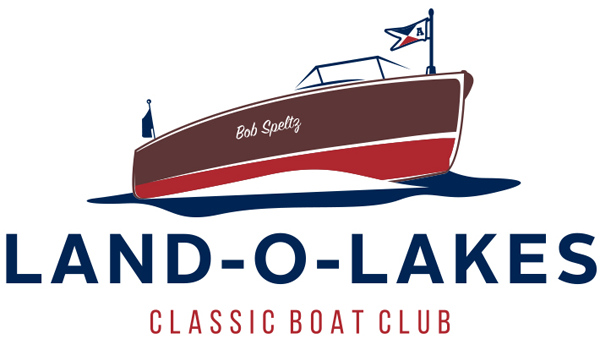Dear Doctor Motorhead,
I must confess I am, by most standards, not a wealthy man.
I enjoy vintage boating and the camaraderie that follows. It seems at times our collective hobby requires so much money to purchase a boat or boats and maintain them in their original state to show and enjoy – a task to show we all so love and endure. We are proud of what we have and want to share, certainly by the mere fact we pay to participate in these shows. This is so evident with the many shows across the country and truly here in Minnesota. It is with this personal commitment and participation by all of us, we can encourage the perpetuation and involvement in the era of antique and classic boating. I see in writings of the ACBS Rudder and the BoatHouse that confirms this is what we are all about. So many – or should I say so few – in our own organization work very diligently to organize, manage and provide us all opportunities to have fun, enjoy and, most importantly, promote this fine hobby and our chapter. With this in mind, I appreciate your involvement and advice as well for us, the do it yourself kind of guys. A penny saved is a penny earned, said some notable. Maybe it was the guy who is on the penny himself. Unfortunately, I dont have a penny in my pocket at the moment to refer to. To you and the readership I am only offering my observations and in this particular case, my concerns or needs for a healthy and functional motor without a ton of money or work on my behalf. I realize that at this time you dont know what my needs or concerns are; you only know my observations. To that end, here is the deal:
You respond to the many problems and writings diligently, for this I appreciate and thank you. I am certain through your lab work with Piston, you have devoted much of your time testing and evaluating the many additives to feed our vintage watercrafts engines, crankcases and gas tanks. There are so many As seen on TV in writings and through flyers and promotions at your local gas dock and auto parts store. Is it important for me to consider any of these additives to prolong my engines life? Will it save me money in the long run? Can I expect a longer running, better and safer engine in the future? I guess, like my predecessors, I have so many questions and so few answers. What do you say, Doc, can you help me solve these mysteries for my fellows in arms and me? Which reminds me.
Signed,
Lester Prairie
Dear Mr. Prairie,
Thank you for your kind words and observations. I have a question for you. It is kind of like, which came first the chicken or the egg? Were you named after the town or was the town named after you, or by some strange coincidence, none of the above? My observation of the cost of vintage boating remains as it has always been. Boating is and will always be somewhat of an expensive hobby. However, take a look at the cost of a new boat which depreciates the day you make the purchase. When I was at the Minneapolis Boat Show last week, and oh, by the way, another nice display by the BSLOL Chapter, I found that $20,000.00 buys you nothing more than a putt- putt fishing boat. You can certainly get involved in our hobby with a lot more boat on an entry level for something very close to that. As some fine notable once said, you can get into a boat that you appreciate, while your asset does the same; a far cry from the new watercraft of today. Im not sure exactly who said that — perhaps he is on the nickel or a one dollar bill. As I have said in the past, do as the good Doctor does, get involved in our hobby; its a no-brainier. In addition, get involved with the club and ACBS as a whole. Your $60.00 goes a long, long way. Besides you just might have some fun. Not such a bad deal after all.
Now on to your question regarding additives. There are many — in fact too many — to list. I will not get into listing them, as my one comment will address them all. Save your money and do one simple thing — change your oil frequently. Most older engines, do not have oil filters, and those that do only do a partial job of filtering the oil. Engines wear out first and foremost due to a lack of lubrication. Your engine is your friend and does not want to give up the ghost prematurely. It will only do so if you have a tendency to neglect it. Pay a little attention to the needs of your motor and it will be your friend for life. In all my writings regarding repairs, this is the most important thing you should know. All inboard engines were designed to last and last. They are simple, basic and reliable. Only when you decide to screw with them, will you find trouble.
Basic fact: oil additives proclaim to, and many do, increase engine life by giving you more lubrication and less wear. The problem here is, it will also affect your transmission. Why? The crankcase oil lubricates your transmission as well. If you put something slick and slimy into your oil, your clutch plates in the transmission will become slick and slimy. You need some friction for them work properly. If you use additives, your next letter will ask me, how do I repair my slipping transmission? So, unless someone out there knows of a product that will only treat the crankcase and not the transmission, leave it alone. Alas, someone out there may proclaim, I have a velvet drive and/or a hydraulic Paragon transmission – this wont be my problem. Yes, this is true,
as these transmissions do not get their lubrication from the crankcase. To that I add, Change Your Oil; there is no substitute to what I have just said.
So, how often should you change your oil? A little story first. When I was an undergraduate at the university studying quantum mechanics, it was the in-thing to drive Volkswagen beetles; They were cheap to buy, easy to fix and very reliable. For those uninitiated, that little air-cooled engine held slightly less than three quarts of oil with no oil filter. Many of my underclassmen felt changing oil was for sissies. Their engines lasted as short as 25,000 miles. Those who changed their oil with some frequency, could expect 45,000 to 50,000. I changed my oil every 1,000 miles and when I sold my little car after graduation, I had over 110,000 miles on it, and still running strong. Back then a quart of oil was less than a dollar — you do the math — pretty cheap insurance; true story.
Your vintage engine has no oil filter and no air filter. At least my VW had an air filter. Back to the original question — how often? I change the oil every 30 hours and every fall, regardless of the number of hours, when I pull out and lay up.
What is the best type of oil to use? Petroleum-based, synthetic-based and combinations of the two are your choices. There is no question the synthetic-based and/or combination is the best. However, because our old boat engine oil gets so dirty so quickly, I depend on the old standby petroleum-based, and save some money and change it often.
What about gasoline additives? With one exception, leave these on the shelf as well. If your engines carburetor is not well tuned, or engine not timed well, you might encounter a build-up of carbon in the combustion chamber or on the valves. If this is the case, shame on you. After all my articles in the last six or seven years: keep it tuned! Remember, your engine is your friend. Simple maintenance like changing your oil, maintaining your carburetor and keeping your engine well timed and tuned will prevent all of this. If, for some reason, you forgot to keep up with any of these tasks because of your kids soccer game, carbon may set in, especially if you putt about rather than going fast from time to time. There is a product called SeaFoam which works very well to eliminate this carbon. Dont become a SeaFoam junkie; use it once, and if it does not cure your aliment, then fix the cause.
So gang, Im off now on my annual trek to the hockey tournament in Fiji. Stay warm and live well.
Dr. Motorhead

